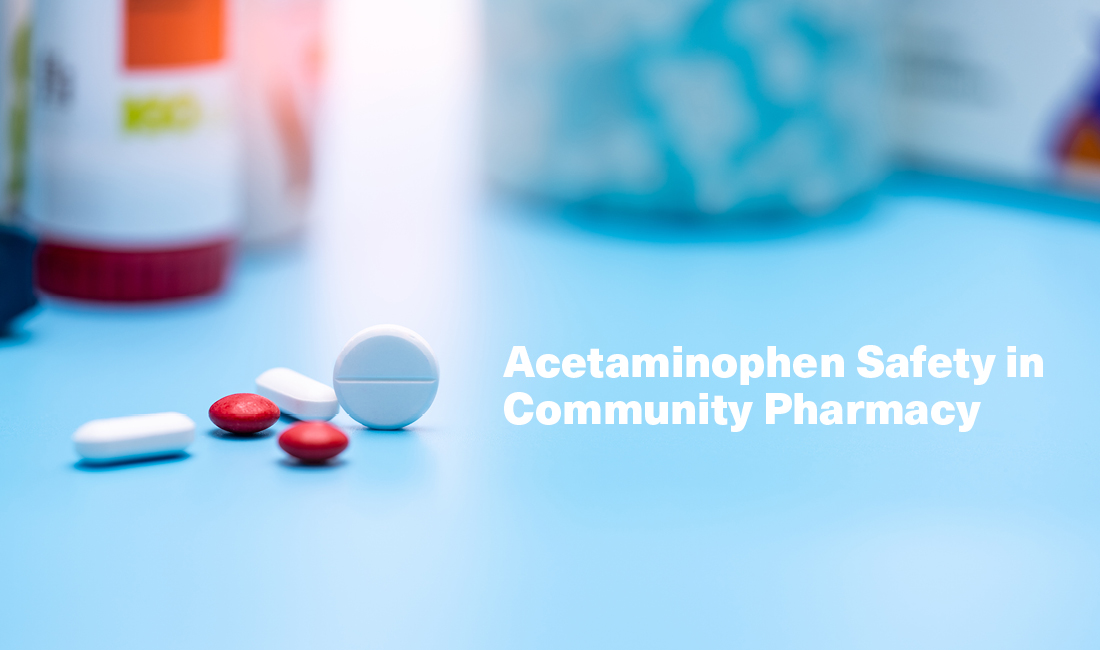In several countries including Canada, acetaminophen overdose is the leading cause of liver failure that results in permanent injuries, transplants, and death. But a recent ISMP Canada Safety Bulletin highlighting two fatal overdoses of N-acetylcysteine, the antidote to acetaminophen overdose, underscores the continuum of risk patients face with acetaminophen use. Community pharmacists have a key role to play in preventing patient harm when it comes to acetaminophen.
Acetaminophen is a safe medication when prescribed, dispensed, and taken appropriately. Risk is introduced when acetaminophen is taken in combination with other acetaminophen-containing products. Factors contributing to unintentional overdose include:
- Lack of consumer awareness regarding the presence of acetaminophen in non-analgesic over the counter (OTC) products
- Unclear dosing instructions on product labels
- Simultaneous ingestion of prescription and non-prescription medications containing acetaminophen
In Canada, changes to product labels in 2009 and 2016 to better communicate overdose risk were unsuccessful. A research study published in the Canadian Medical Association Journal found that the new labelling standards did not lower the rates of hospital admission for accidental acetaminophen overdose. Researchers asserted that additional prevention strategies are needed, and prescribers and pharmacists have a key role to play in educating their patients to prevent accidental overdose of acetaminophen.
Some patient counselling strategies include:
- Review all OTC medications with your patients, especially if they are prescribed a prescription product containing acetaminophen. Use a teach-back method to boost patient knowledge and engagement
- When patients are seeking or using OTC medications containing acetaminophen such as cough and cold products or muscle pain products, discuss the potential risk of toxicity and safe dosages of acetaminophen
- Make sure that parents and caregivers understand how to dose children’s acetaminophen products and that weight-based doses are based on an accurate weight in the appropriate units (for example, kilograms versus pounds)
- Inform parents that pediatric formulas are available in different concentrations
ISMP Canada continues to work with key stakeholders, including poison control, to make additional evidence-based recommendations on prevented harm from N-Acetylcysteine administration in hospitals.
Patient education and counselling can help prevent potential overdose of acetaminophen and reduce the risk of liver injury and death. Reducing the risk of acetaminophen overdose also reduces the risk of overdose for its antidote: N-acetylcysteine.
Below is a list of other resources on acetaminophen safety issues:
- ISMP Canada Safety Bulletin: Death Investigation – Acetaminophen Overdose: Managing a Duplication Error – June 22, 2022
- Medscape Pharmacists – May 04, 2022
- ISMP Safety Bulletin Acetaminophen: Preventing Harm through Safe Use – April 27, 2017
- ISMP SafeMedicationUse.Ca Newsletter – February 6, 2014 (for the public)



